每日观察:关注第一季度全球智能手机出货量(4.27)
1)IDC最近报告指出,2013年第一季度全球手机出货量达4.186亿部,其中智能手机占比51.6%(2.162亿部)。
三星智能手机在该季度出货量将近7100万部,占比将近32.7%;苹果出货量为3740万部,市场份额为17.3%。而LG、华为、中兴等智能手机所占份额均不足5%。
苹果出货量比去年同期仅增长6.6%,远低于三星的60.7%,以及LG的110.2%,华为的94.1%,中兴的49.2%。而在2012年第一季度,三星和苹果两者出货量分别是4400万以及3510万,增长率分别是267%和89%。
从整体手机市场来看,三星出货量为1.15亿部,占比27.5%;诺基亚为6190万部,占比14.8%;苹果为3740万部,占比8.9%;LG为1540万部,占比3.7%;中兴为1350万部,占比3.2%。
2)Strategy Analytics最新报告显示,今年第一季度全球智能手机出货量为2.095亿部,但整体手机出货量已从去年同期的3.78亿部降至3.73亿部(下降1%)。
智能手机市场主要发展动力包括LTE手机在北美及世界其他发达地区的强势增长,以及3G设备在新兴市场的需求扩大。
韩国制造商三星智能手机出货量为6940万部,所占份额为33.1%,而苹果则位居第二,出货量为3740万部,占比17.9%。
LG排名第三,出货量为1030万部,占比4.9%;华为排名第四,出货量为1000万部,占比4.8%。
三星在整体手机市场中占比28.6%,出货量为1.066亿部;诺基亚排名第二,出货量为6190万部,占比16.6%;苹果出货量为3740万部,占比10%。
3)移动分析及广告公司Apsalar最新调查意外发现,女性用户安装的应用比男性多40%,购买的付费应用比男性多17%,为这些应用所支付金额也比男性多87%(游戏邦注:其调查样本是5亿名Android和iOS独立用户)。
最受女性青睐的前5种热门应用分别是社交媒体、新闻、实用软件、生活、书籍应用;而最受男生欢迎的应用类型分别是商务、游戏、导航、旅行、医疗保健应用。
男性对商务类应用的使用率比女性高85%,对导航应用使用率比女性高40%;而女性对社交媒体的使用率比男性高600%,对新闻应用使用率比男性高90%,实用型应用使用率也比后者高89%。
4)据venturebeat报道,英国游戏公司King日前宣布其日活跃用户超过6600万,其成员规模仅为400人。值得注意的是,Zynga日活跃用户为5200万,公司团队多达2902人。
Zynga成立于2007年5月,于2009年迅速成为Facebook头号社交游戏公司,在2009年中期发布了《FarmVille》,该游戏月活跃用户一度逼近8300万。King于2003年进入网页游戏领域,于2011年开始将300款网页游戏投放到Facebook,2011年4月发布首款Facebook游戏《Bubble Saga》,该游戏晋升至前10大热门游戏之列,King也因此成为位居第45名的开发商。2011年10月,该公司进入Facebook十大开发商之列,2012年3月,收购移动游戏开发商Fabrication Games。
5)据venturebeat报道,谷歌最近宣布开发者必须通过Google Play才能更新其投放到Google Play的应用,并指出除了Google Play更新机制,Google Play的应用下载就无法修改、替换或更新其APK二进制码。
谷歌此举的用意很明显,那就是控制Google Play应用更新机制,禁止开发者绕过Google Play更新内容,防止有人借此在应用中植入具有潜在危险的功能或内容。
6)据Kotaku报道,EA日前确认了将进行新一轮裁员的消息,表示为进行业务重组,公司将裁减10%的员工,并关闭PopCap温哥华(游戏邦注:主要向PC、Mac、Facebook、平板电脑和手机平台推出寻物解谜游戏)和Quicklime这两个工作室。
EA还宣布将进采取额外措施推进EA业务重组,其中包括将由首席运营官Peter Moore掌管公司核心市场业务,EA Labels总裁Frank Gibeau负责监管社交平台Origin。(本文为游戏邦/gamerboom.com编译,拒绝任何不保留版权的转载,如需转载请联系:游戏邦)
1)As Smartphones Reach A Global Tipping Point, Leader Samsung Shipped 71M Devices In Q1, Nearly 2X As Many As Apple
Ingrid Lunden
IDC is the first of the big analyst companies to come out with quarterly mobile device shipment numbers that indicate Q1 as the first quarter where smartphones have outnumbered more basic
feature phones in worldwide shipments: in a total market of 418.6 million devices, 216.2 (51.6%) were smartphones. But it is was a kind of tipping point of another sort, too: it is a sign of how Apple is not the juggernaut that it once was.
(BTW… for those of you keeping track, this is not the first quarter where Android has all but dominated the top-five rankings, save Apple’s presence. That happened in Q4 2012, according
to IDC’s figures.)
Samsung shipped nearly 71 million smartphones in the quarter, giving it a market share of almost one-third of the whole of the smartphone sector (32.7%). Apple, meanwhile, shipped 37 million devices — just over half as many as Samsung, for a market share of 17.3%. With all others in the top-five — LG, Huawei and ZTE — still with less than 5% market share apiece, Samsung and Apple remain a strong top-two.
But looking at the pattern of growth something else comes out: Apple only grew its volumes by 6.6% over the same quarter a year ago. In fact, in that regard, that growth puts it far behind
not only Samsung (at 60.7% volume growth), but also behind LG (110.2% growth); Huawei (94.1%); and ZTE (49.2%). As a point of comparison, Samsung and Apple were more nearly level a year ago, in Q1 2012, (44 million versus 35.1 million in Q1 2012), and respectively saw growth of 267% and 89% in shipment volumes — the only two that increased:
Today:
A year ago:
As we’ve pointed out before, shipments to those who sell devices are not the same thing as sales to users, but it is an important barometer for where the wider market is going. (The most recent figures from Kantar Worldpanel, which track sales, spell out how the difference between Android-based and Apple sales is not as wide as 2:1 in every market, but is in fact significantly wider in some.)
It’s notable that Nokia, BlackBerry, and HTC whose shipments were on the decline last year but still enough to keep them in the top-five, are now out of the picture altogether. It also shows that Nokia’s sub-10 million sales of smartphones, with 5.6 million Lumias, are not big enough figures to break out of the sizeable ‘others’ category.
With Apple still shipping more than three times as many devices as its next-closest competitor, LG, even if things continue as they are today, it will likely still be some time before it gets overtaken by the others in the list. Its performance also was enough to keep it in place as the world’s third-largest mobile handset maker overall, in a list otherwise dominated by companies that make both smartphones and feature phones:
IDC notes that LG, which shipped 10.3 million smartphones in the quarter, a rise of over 110% over the year before, was helped by three factors in the last quarter. The first of these was
the popularity of the Nexus 4 device it created with Google; the second was the success of its lower-priced L Series (15 million sold in this category alone since launched); and the third was its LTE line. These three point to how those Android handset makers that can create strong enough and distinctive handsets that are set apart from the rest of the Android crowd can continue to pull away from the crowd.
Apple’s iPhone brand has never been seen as anything other than premium, and true to type, it is still not playing at the same level as others smartphone industry in creating new models
that aim at the “cheap smartphone” market.
CEO Tim Cook did not discuss the prospect of a new, low-cost device, on Apple’s earnings call this week — the focus remains on selling older models, namely the iPhone 4, in markets like
China as a route to bringing new smartphone users on to the platform. Other handset makers like Samsung, Nokia and many “others” are building out portfolios that hit not only at high-end users but those looking for entry devices priced at closer to $100 or even less. Some handset makers, specifically in emerging markets, are targeting only this market.
On the other hand Cook also left open the possibility that whatever comes next may be something different altogether: the “really great stuff” coming out in the autumn and in 2014 could
be another iPhone. Equally, it could be something else altogether, and not a handset at all. (source:techcrunch)
2)Smartphone shipments up 36.2pc in Q1
by Daniel Gumble
Mobile phone sales down one per cent.
Global smartphone shipments have increased by 36.2 per cent to 209.5 million units in Q1, while mobile phone shipments fell by one per cent, according to Strategy Analytics.
The smartphone market’s growth was driven by the strong uptake for LTE handsets in North America and some of the world’s other developed regions, as well as the growing demand for 3G
devices in emerging markets.
Korean manufacturer Samsung accounted for 33.1 per cent of the market, having shipped 69.4 million smartphones, while Apple followed in second place with 37.4 million units shipped and a
market share of 17.9 per cent.
LG took third place with a share of 4.9 per cent and 10.3 million units, followed closely by Huawei in fourth, having shipped ten million units and taking a market share of 4.8 per cent.
Meanwhile, mobile phone shipments dropped by one per cent year-on-year from 378 million units to 373 million units.
Once again, Samsung claimed the lion’s share of the market with 28.6 per cent and 106.6 million units shipped. Nokia took second place, shipping 61.9 million units to take a 16.6 per cent
share, while Apple shifted 37.4 million phones for ten per cent of the market.(source:mobile-ent)
3)Battle of the mobile sexes: Women install 40% more apps, spend 87% more than men
John Koetsier
Why are app developers not marketing to women more? Marketing to women is a massive and growing industry, but it doesn’t appear to have hit the world of mobile marketing in any really big way yet.
That’s both surprising and almost certainly about to change, however, as soon as marketers see the latest data from Apsalar. The mobile analytics and advertising company studied its data
pool of 500 million unique users across both Android and iOS, and it found some extremely interesting differences in the way men and women buy and use apps.
Women install 40 percent more apps than men, buy 17 percent more paid apps, and pay an astonishing 87 percent more for those apps. In other words, if you want to make money selling apps, you better appeal to women.
There is some hope for the knuckle-draggers among us, however. Men do lead in a couple of categories: mobile games and in-app spending. In other words, we’re suckers for that virtual gewgaw that will help us crush our virtual enemies in our virtual worlds. Oh, and one other thing — very stereotypically, we use business-related apps 85 percent more than women.
While we’re on the traditional sex-roles theme, women use social media apps a staggering 600 percent more than men, news apps 90 percent more, and productivity apps 89 percent more.
I’m guessing they’re not using the productivity apps to schedule their Clash of Clans battles, either.
One other interesting difference: In spite of our vaunted navigation skills and reputed disinterest in asking for help or directions, men use navigation apps a full 40 percent more than women.(source:venturebeat)
4)The DeanBeat: King overtakes Zynga as the largest social gaming company
Dean Takahashi
A sea change has happened in social gaming. The Zynga era is over. Long live King.
It’s not quite dramatic as that as the competition is still fierce for games on social networks and mobile devices. But Zynga’s earnings call revealed a big change in the standings. Zynga said it has 52 million daily active users of its social games on Facebook, Zynga.com, and mobile devices. London-based King says it now has more than 66 million daily active users. And the remarkable thing is that King has just 400 employees while Zynga has 2,902.
Zynga has had a long run as the king of social games as it jumped on the platform as soon as Facebook opened itself up to third-party applications in May 2007. It grew quickly and, with the
help of games like Mafia Wars and Zynga Poker, became the No. 1 company on Facebook in early 2009. It held that rank ever since. When Zynga launched FarmVille in mid-2009, the company’s users shot through the roof to nearly 83 million monthly active users in a single game. It started crushing rivals, who decided to flee to new platforms on mobile devices as a way to escape it.
Many contenders emerged, like Berlin’s Wooga and Electronic Arts. Just a year ago, it looked like EA would give Zynga a run for its money thanks to rapid growth of titles from its Playfish division, acquired for up to $400 million in late 2009. EA saw rocket-like growth for titles like The Sims Social and SimCity Social. It looked like, if anyone could do it, EA would supplant Zynga with its well-known gamer brands. Then, poof. EA’s audience evaporated as mobile devices grew in favor and the company failed to capitalize on its one-off successes. EA finally shut down Playfish this month.
But you can’t fully credit Zynga for EA’s defeat. Ten-year-old King played a role, too, and it was much more methodical in catching up in social games.
“King now has more than 66 million daily players of our games, and in Candy Crush Saga, we have a global hit on Facebook and on mobile,” said Riccardo Zacconi, the chief executive of
King, in a statement. “Our players love being able to switch from mobile phone to tablet computer to PC without losing their progress in the game — the cross-platform synchronization that
makes that possible is a big reason for our popularity. Our bite-size games are perfect for coffee breaks, bus journeys, or any spare few minutes in your day.”
Born on the web in 2003, King focused on tournament games and web-based casual titles for years. But by 2011, it was clear the audience was shifting. Rather than dump its 300 games from the web onto Facebook, King experimented for a while to see what worked.
King launched its first Facebook game, Bubble Saga, in April 2011. That title hit the top 10, and King’s ranking was No. 45. In September 2011, the company launched Bubble Witch Saga on Facebook. By October 2011, King became a top-10 Facebook developer. In March 2012, King acquired mobile-game developer Fabrication Games.
In April 2012, King came out with its most triumphant game, Candy Crush Saga, on Facebook. The success of that title catapulted it ahead of EA, Wooga, and Disney-Playdom. King kept bulking up its studios. It figured out that gamers were growing up and out of the simple simulation games that they first embraced on Facebook. They were increasingly playing arcade-like games that could generate outcomes in a minute or two. They were short, fun, frenzied, and addictive. Zynga was slower to recognize this shift.
The smart thing that Zacconi did was that he viewed social networking and mobile as the same platform. He drove King to design games that could be played on a PC or Mac on Facebook, or on a mobile device. You could log into the game on any platform and find your progress and scores synchronized. That allowed consumers to “consume our content in a seamless, ubiquitous way,” Zacconi said.
It did this first with the mobile version of Bubble Witch Saga, launched as King’s first real push into mobile games in July 2012. By January, Candy Crush Saga became the No. 1 game on Facebook. It was joined in the top 10 by Pet Rescue Saga and Bubble Witch Saga. Last month, King launched Farm Heroes Saga and Papa Pear Saga. Zacconi said recently that, after the mobile version of Candy Crush Saga launched, King saw a big increase in demand for the PC version as well. It is also leveraging Facebook’s fast growth on mobile to find new users for its games.(source:venturebeat)
5)Google kindly reminds developers that they can’t update their apps without Google Play
Ricardo Bilton
Google is reminding developers who’s in charge in the Android relationship — and it’s not the developers.
In an effort to take control over self-updating apps, Google is now making it clear that developers can’t update Google Play apps by any other means than Google Play. The move is an
indirect dig at Facebook, which was found to be doing that very thing with its own app last month.
“An app downloaded from Google Play may not modify, replace, or update its own APK binary code using any method other than Google Play’s update mechanism,” says the new text added to the “Dangerous Products” section of Google Play’s developer program policy
Right now, the only apps that may update without Google Play are apps that weren’t downloaded from Google Play in the first place. (These are called “side-loaded” apps.)
For Google, the core of the problem is security: If developers can circumvent Google Play for app updates, how difficult would it be for bad guys update their apps with new, potentially dangerous features and permissions that Google isn’t aware of?
“Google play is a trusted source for Android application downloads, and we are committed to providing a secure and consistent experience,” Google says.(source:venturebeat)
6)PopCap Vancouver closes doors as EA reportedly culls staff by 10%
by Keith Andrew
Rumours of layoffs at Electronic Arts have today been confirmed by the firm, with a statement claiming a re-organsisation of its structure is necessary to meet “priorities in new
technologies and mobile.”
Though no numbers or indeed affected studios have been named by EA, Kotaku claims the publisher may have culled up to 10 percent of its workforce, with PopCap Vancouver and Quicklime both closing their doors.
No hidden message
“We are extremely grateful for the contributions made by each of our employees – those that are leaving EA will be missed by their colleagues and friends,” said EA in the statement,
published on its website.
“These are hard but essential changes as we focus on delivering great games and showing players around the world why to spend their time with us.”
PopCap Vancouver was best known for being behind EA’s hidden object line up, which stretched across PC, Mac, Facebook, tablet and mobile.
According to a leaked internal memo supposedly sent by executive chairman Larry Probst, the reduction in EA’s workforce is the result of “difficult decisions” designed to meet the changing
games market.
Streamlining
“In recent weeks, the executive team has been tasked with evaluating every area of our business to establish a clear set of priorities, and a more efficient organisational structure,” said
Probst in the memo, obtained by TechCrunch.
“This process has led to some difficult decisions about the number of people and locations needed to achieve our goals. The workforce reductions which we communicated in the last two weeks
represent the majority of our planned personnel actions.
“We are extremely grateful for the contributions made by each of these individuals – they will be missed by their colleagues and friends at EA.”
Probst adds that addition actions are being taken to streamline EA’s operations, starting with core marketing functions being consolidated under COO Peter Moore.
Social platform Origin, meanwhile, will now come under the control of president of EA Labels Frank Gibeau.
Difficult decisions
“Change is sometimes difficult, but essential,” concluded Probst in the memo.
“The adjustments we are making will put us in the best position to build great games and services, deliver them more efficiently to consumers, and demonstrate to players around the world
why they should spend their time with us.
“EA is a great company, with talented and hard-working teams, a strong portfolio of products and an extremely bright future.”
News of the layoffs comes little over a month after the resignation of CEO John Riccitiello, who handed in his notice after EA failed to meet financial targets.
Commentators were quick to suggest, however, that Riccitiello’s legacy was transforming EA from a publisher focused on boxed goods to one that was now fully versed with the digital market.
It now appears EA requires yet further transformation if the firm is to full get to grips with the fast-moving mobile and tablet sector.(source:pocketgamer)

























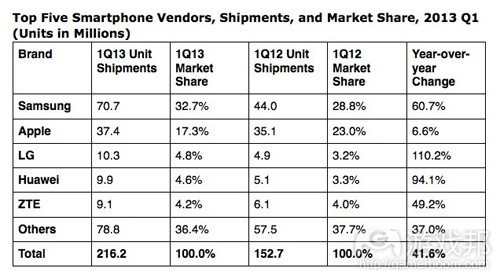
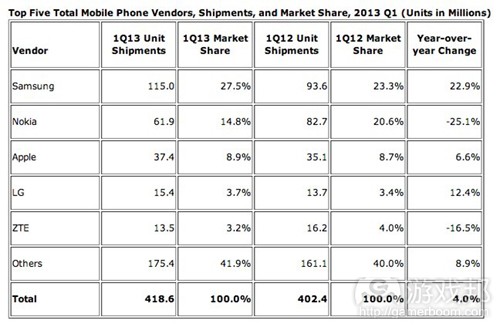


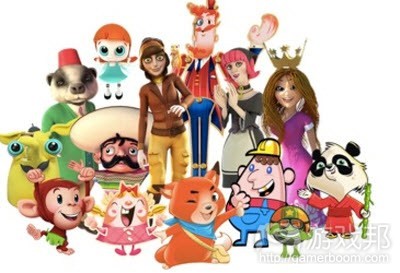
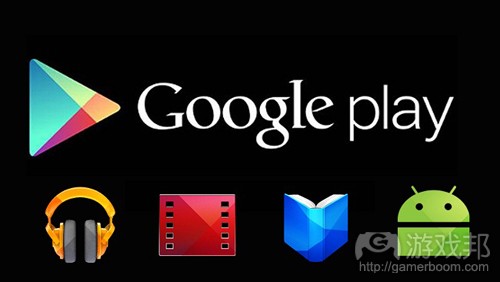
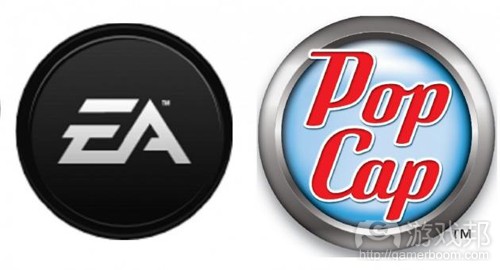














 闽公网安备35020302001549号
闽公网安备35020302001549号